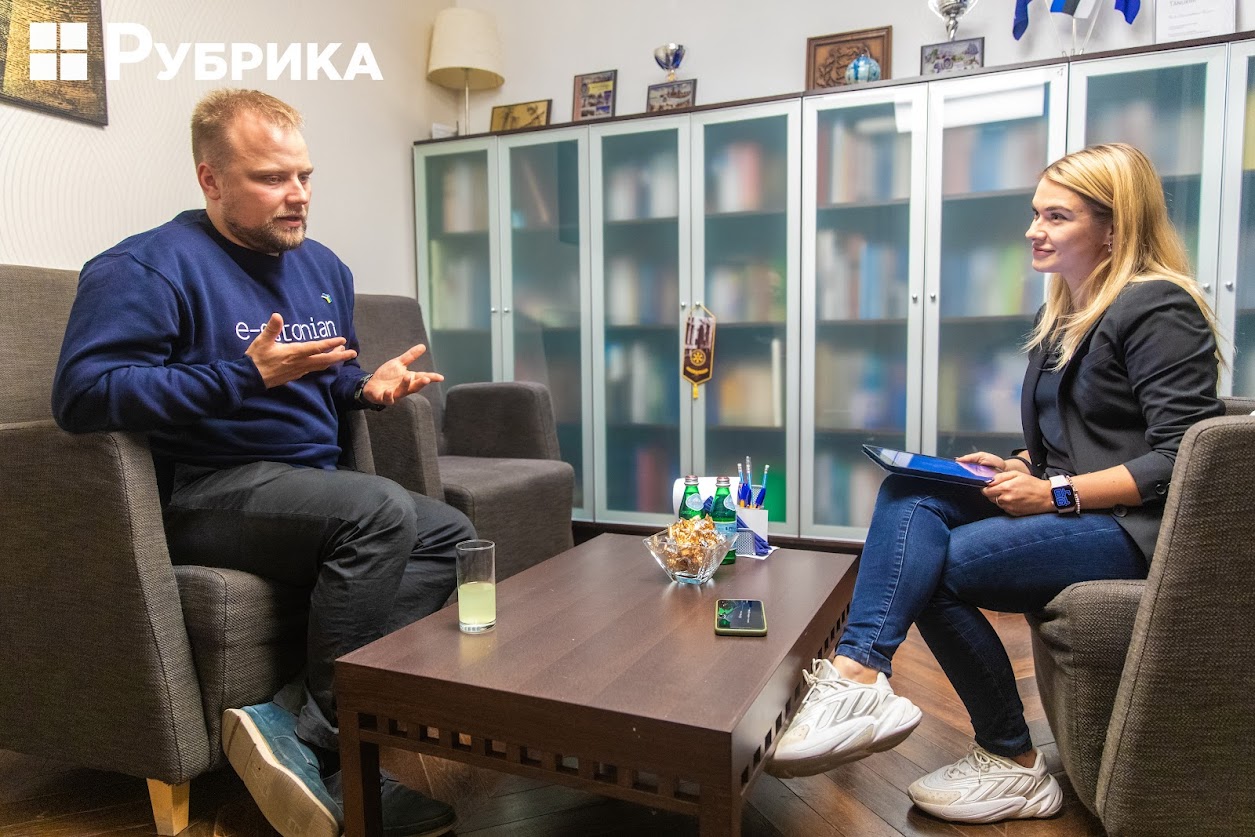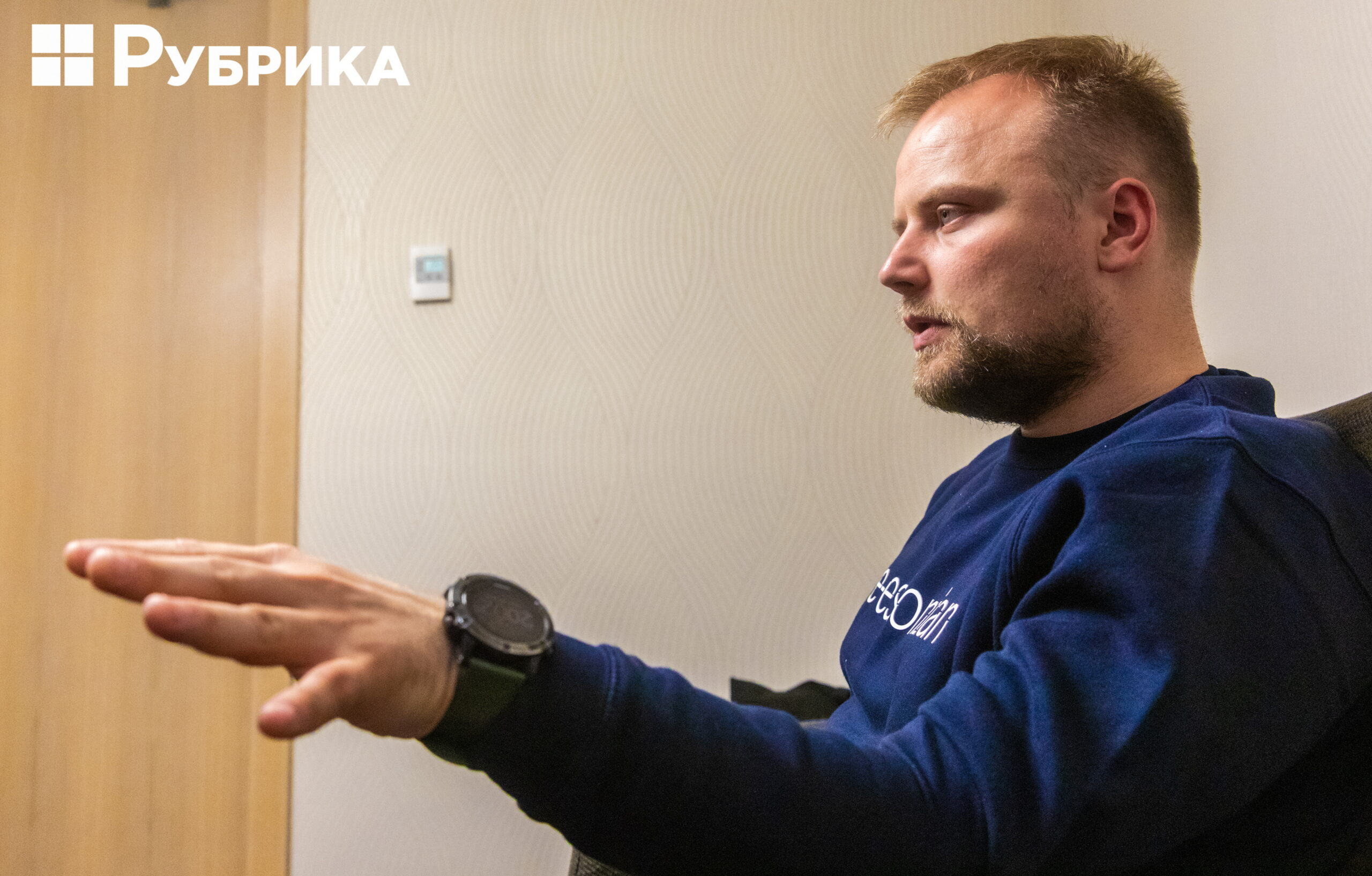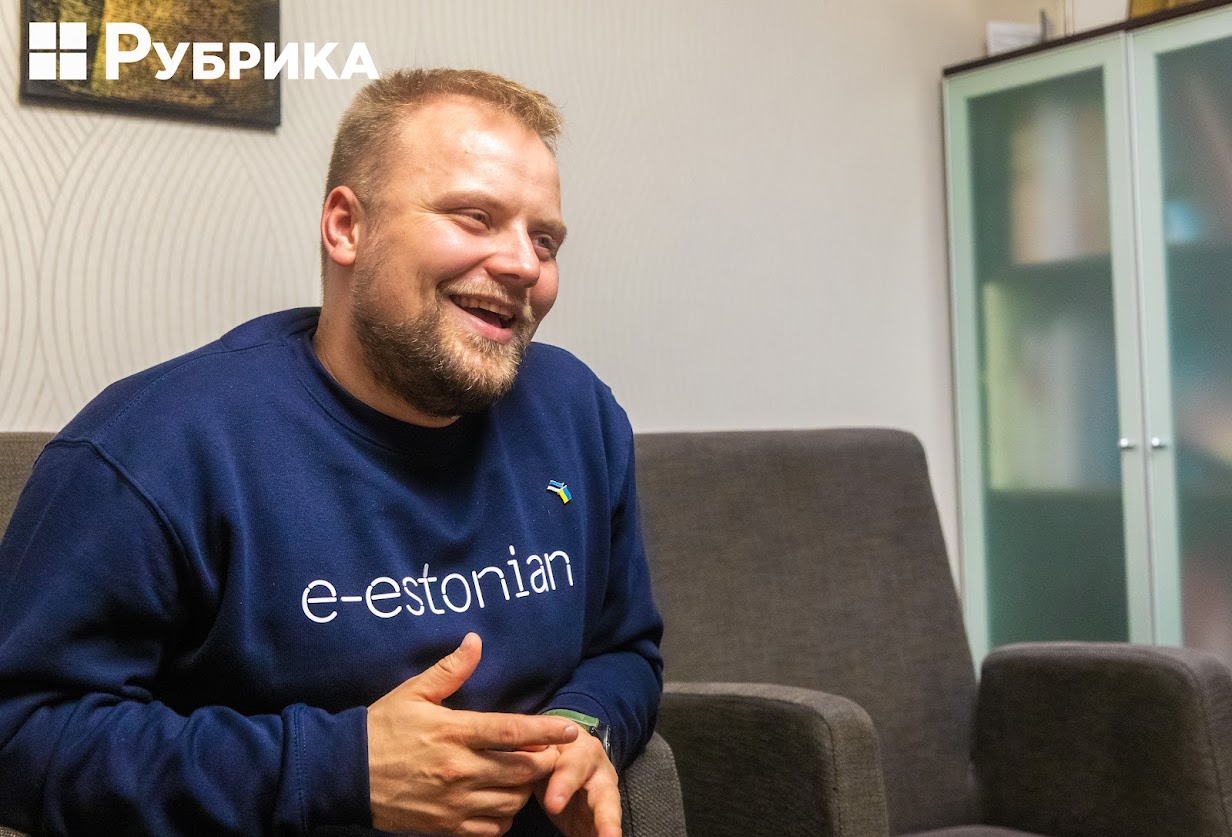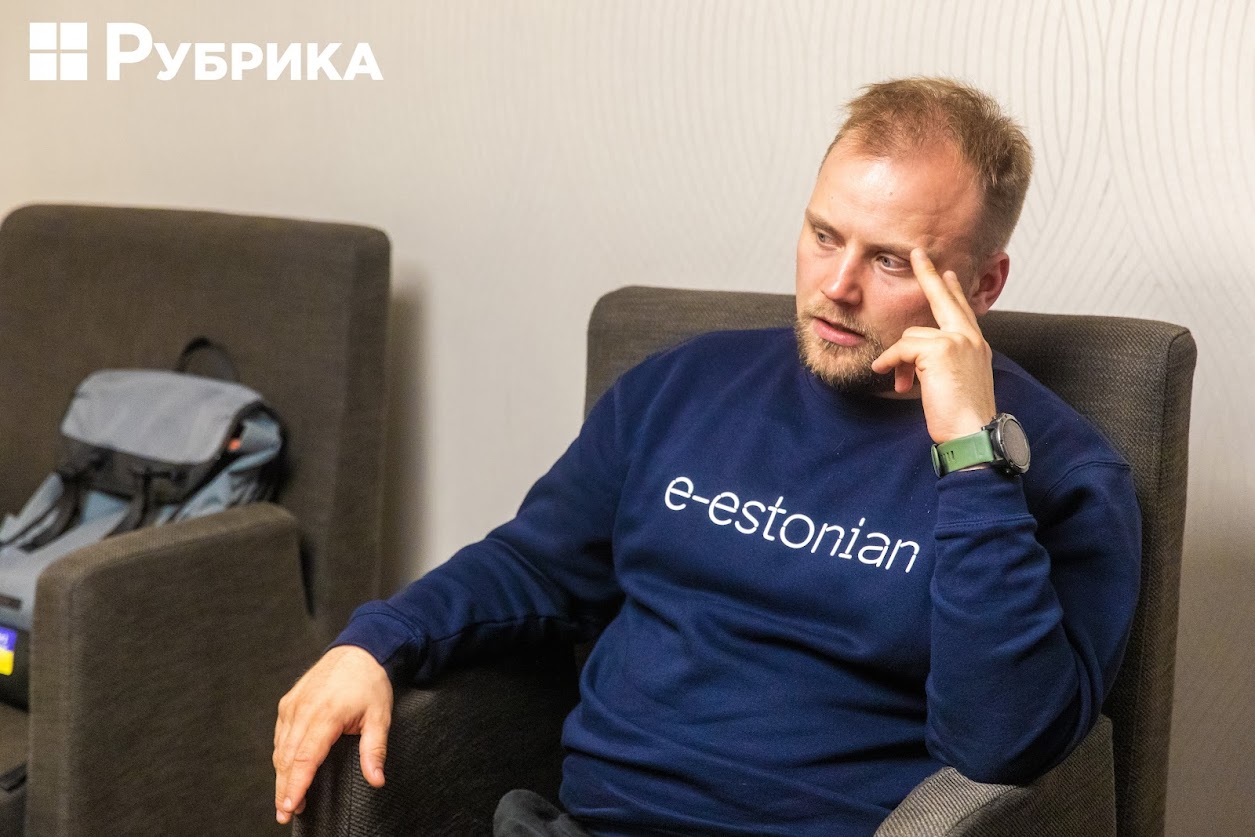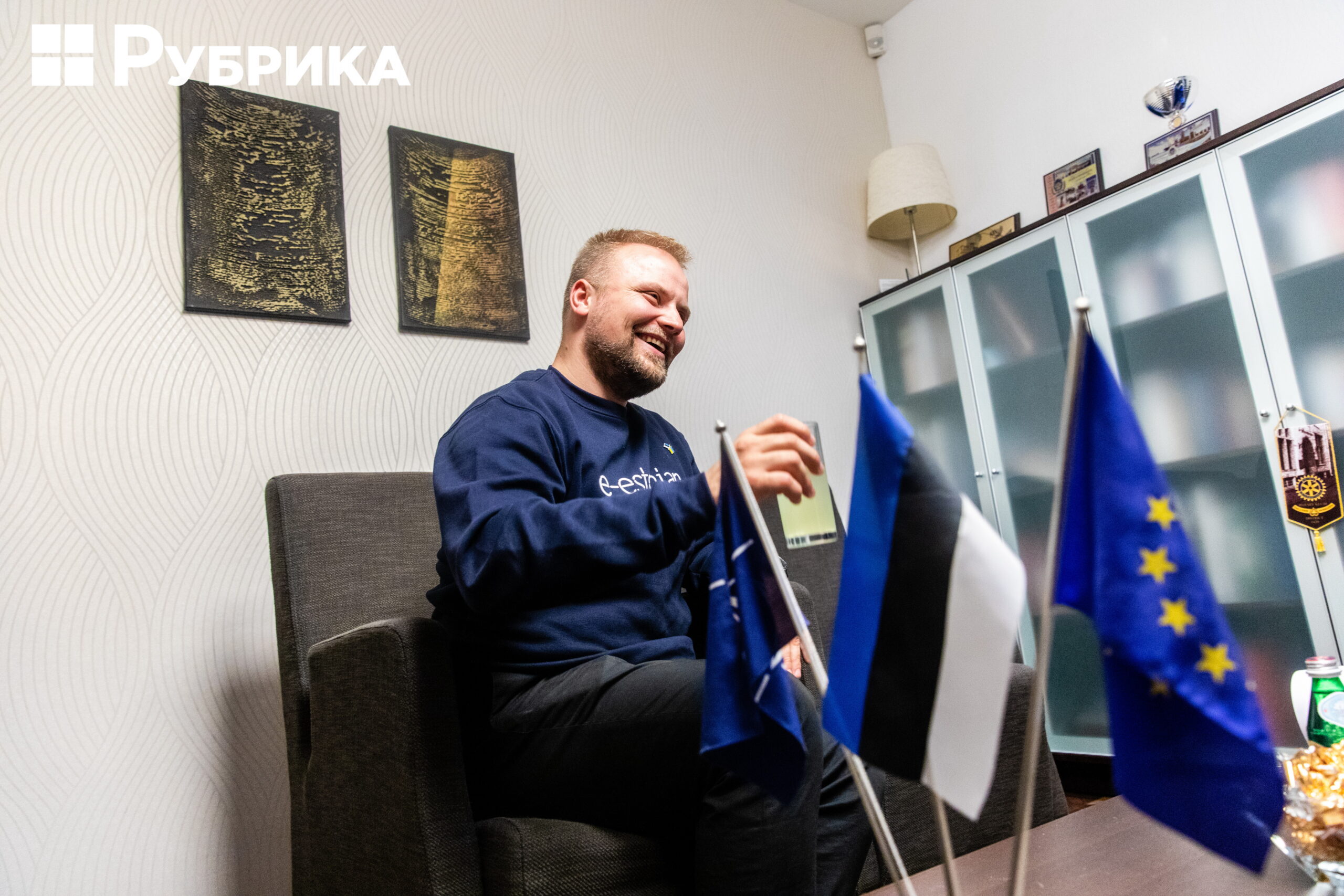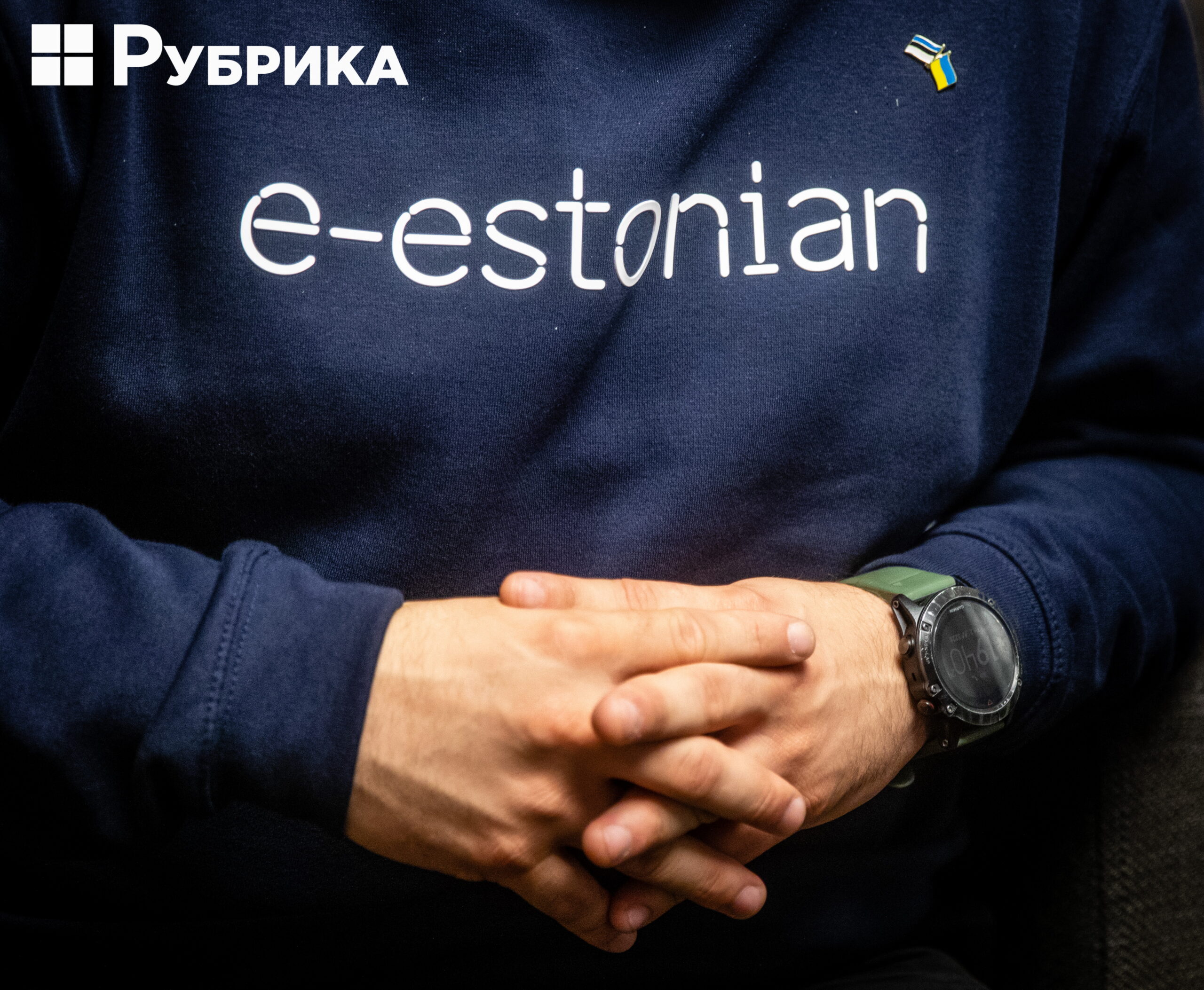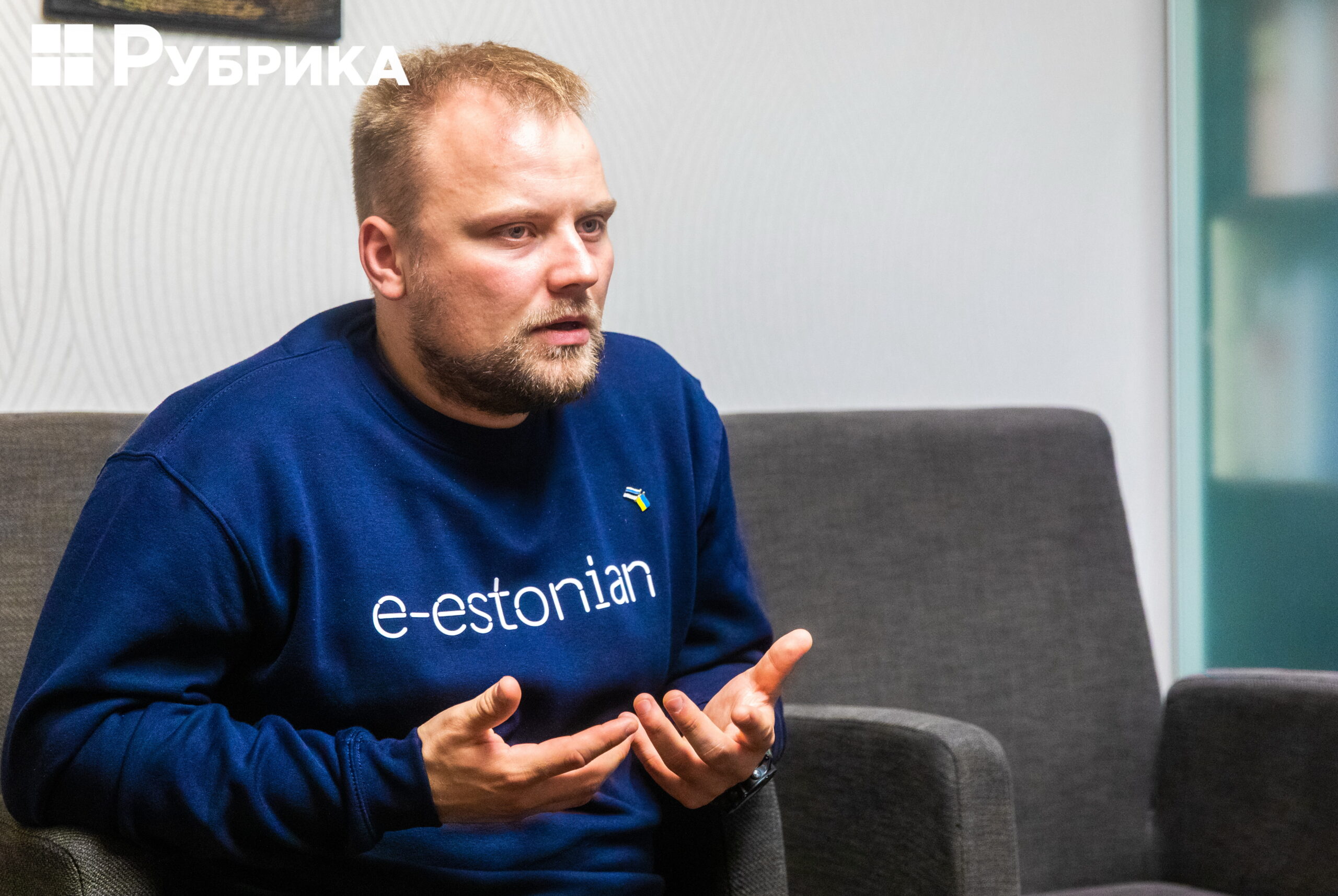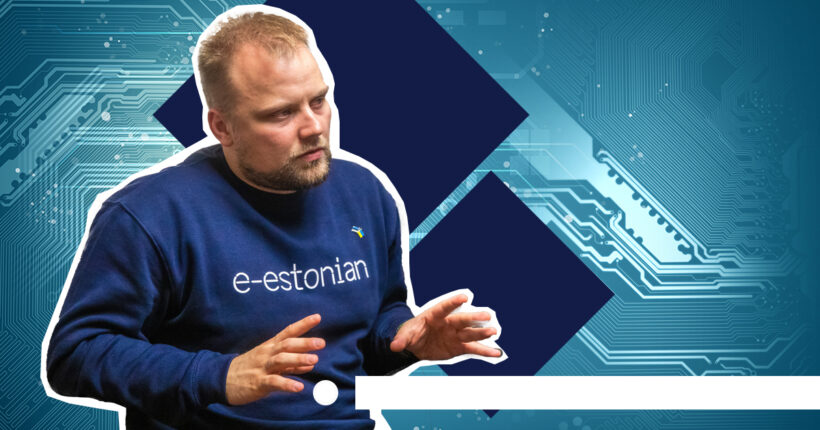
On Friday, September 2, Rubryka met with Kristjan Järvan, Estonia's Minister of entrepreneurship and information technologies. Estonia is one of the leaders in the implementation of digital services, and Ukraine's Ministry of Digital Transformation has closely worked with Estonia's government during the development of the Diia app. Now, Estonia plans to launch its own application similar to Diia. That's the reason behind Minister Järvan's visit to Ukraine. Rubryka had a chance to speak exclusively with the Minister on the future of digital cooperation between Ukraine and Estonia and his thoughts on the world's cyber security in the face of modern threats and challenges. Diia is an application created by Ukraine's Ministry of Digital Transformation in which all the necessary documents are in one place on your smartphone. It is a single portal where you can get all public services online: quickly and conveniently.
Before our interview, the Minister held a meeting with Ukraine's Deputy Prime Minister and Minister of Digital Transformation, Mykhailo Fedorov. As a result of the meeting, a cooperation agreement was signed to promote an exchange of experiences in digital transformation.
According to Minister Fedorov, Estonia was the first country whose example Ukraine followed when it started establishing the Ministry of Digital Transformation. Their vision of digital transformation and the creation of a digital state inspired and continues to inspire Ukraine to launch services in a few clicks. Now Estonia will be able to adopt Ukraine's mobile first-state experience, where all essential data and services are in the smartphone.
— Ukraine and Estonia have been cooperating in the field of digitalization for years now. Has the war affected our cooperation and major priorities?
"Our cooperation has a much bigger focus on cyber security now. We are chasing information on what kind of attacks have been going on and how we are combating them on all sides. Because not only did Ukraine focus on cyber attacks, but also other Eastern European countries supported Ukraine. We are exchanging information, and it makes us all better.
I'm here today because of the Diia app. I really think it's a cool concept that makes a lot of sense. It makes everybody happy when this mutual inspiration is going on pushing us to go forward and make the world a better place. If we spend so much time on our phones, we should be able to reach out to governments and vice versa. This is something we don't have in Estonia. The main feature is usability. We have enough features in our E-government as well, but they can always be better. As to this quality jump from where we are now — I think Ukraine has set the pace and the target. It's the right thinking, and it makes a lot of sense. That's the main thing we are targeting. But of course, there are other things, like having your phone as your passport. It's legally binding and not just a picture of your passport. We forget how easy it is. Many officials go to Brussels, where the documentation process takes months. It sounds absurd, but it's what is going on," the Minister shares.
"Trust is the most important thing when it comes to digital services"
— What is your favorite feature of the Diia app that you're most looking forward to implementing in Estonia? Minister Fedorov today mentioned that digital Ukraine started with digital Estonia. The world knows Estonia as a country with the most extensive number of digital services. But does Estonia have anything to learn from Ukraine in terms of digitalization? In particular, you've mentioned launching the analog of Diia in Estonia – tell us a bit about it.
"I think a huge part in winning the war is that citizens see that the government has taken the proper steps and protected them and their interests. It produces trust. And trust is the most important thing when it comes to digital services — when citizens trust to give their personal information to an app. Practicality is what is lacking in Western Europe. Here, you can make efficient choices without fearing what everyone will think. If you look at the number of Diia users — it's impressive, and that is what shows how valuable the app is for citizens. I heard Minister Fedorov's plans for the future; they were amazing. Bold moves."
— The world now is highly digitalized. russia's war against Ukraine is the first war when the information and cyber front are actual battlefields. Do you think Ukraine's high digitalization is an advantage or vulnerability? How is this war different in terms of digital challenges? Estonia has experienced russia's cyber attacks before – does Estonia feel threatened due to possible new attacks from russia now?
"Not really. Most of the attacks are DDOS attacks, and we have a firewall. There is basically no effect on government sites. Last week they attacked free media, but we responded really quickly and fixed everything quite soon. Of course, the more services you have digitalized, the more value you create in the digital world, the more you have to focus on cyber security, and the more you have to lose. But at the same time, if something goes down, you will always have more resources than you would have had without digital services. You can still turn to your governmental official, and they will fix it. And they have a lot more capability because all other services are running. It's a question about absolute and proximate levels. At absolute levels definitely, you will have more services even if one service is down because of a cyber attack. But if you talk about citizen expectations — it's a lot different. Of course, time goes by, and citizens expect more from their governments. Especially taking into account Ukraine's size and population — it makes a lot of sense to get as many services digitalized, as possible, because it opens up so much people's time to make a company or work somewhere else and create more value and raise the standard of living in Ukraine. It makes a great spillover effect. This is why I think Minister Fedorov's initiatives make a lot of sense."
Minister Järvan teased us a little with Ukraine's Ministry of Digital Transformation's top-secret future features of the Diia app, emphasizing that those are very bold moves and ideas.
Rubryka also asked the Minister about his tips on providing cyber security on a personal user level.
"Everything starts with cyber hygiene. There are still people who believe that some prince is sending them money. The human element is the weakest link in cyber security. There is no secret. Just don't share your password, don't make it too obvious, and don't put it on the Internet — that would fix 90% of the problems. In terms of governmental actions — we need to focus less on new functionality and more on protecting what we already have".
"If you are smaller — you have to be smarter"
We also asked the Minister about the prospects of bilateral cooperation between the two states. He emphasized that he sees the future of cooperation in cyber security and the usual military technology — drones and communication devices. These are things that make a great difference in the war. Of course, classical ammunition plays a huge role, but according to the Minister, if you are smaller — you have to be smarter.
"I think we have a lot of initiatives coming from the front lines. We are actually spending time on them and giving resources, helping them get to the market, to the militaries. So far, it has always been a very complicated way — from the military to the big company. Nowadays, when countries have basically woken up and understood that the war is real and we need to try new stuff, the budgets have gone up, and there is room for innovative money. And connecting innovative money to innovative ideas and seeing what the future will look like is very interesting and very practical. I think working with Ukraine is huge and beneficial. Not only because we share the same threats, but also because making stuff that really works and makes sense is worth your time."
— It's no secret that public services in EU member states are lagged, and it takes an eternity to get anything done, documentation-wise. In contrast, Ukraine is very progressive in providing public services here and now, whether opening a bank account, paying bills, or booking an appointment in any governmental structure. As Ukraine is bringing its legislation closer to the EU standards, do you think it will be a step back from our progress in terms of digitalization?
"I don't think so. I think the reason why some countries are behind is not much about legislative power but about legacy systems. People want to keep their jobs, saying, "this can't be done, this will cost too much money, we have always done it like that." It is a classical situation. That's the main reason why the services are lagged. As Ukraine is moving closer to the EU, in terms of legislation, it will bring more value because Ukrainian solutions will work not only in Ukraine, but every European country will accept the documents and the data coming from it. As long as Ukraine is still applying to the EU, it would require new legislation within the EU to accept Ukrainian data, apps, etc."
As winter is slowly approaching, and all European officials are screaming about how hard it will be, Rubryka couldn't help but ask Mr.Järvan his thoughts on the upcoming challenges and how different the winter might be from the last one.
"Energy prices were really high last winter, and we expect them to be 2-3 times higher this winter. If we look at Europe, we will see that it was drought season, and there was not enough water. It meant less water for France's nuclear power plants – they had to power down, and you also couldn't bring as much coal to Germany's power plants up the river. The Norwegian hydropower was down due to less water. This is what's going on. If we get Covid at the same time with russian cyber attacks this winter, it's going to be difficult."
— Is there a place for digital transformation during the war?
"Yes. During the war, you have to target your resources. Socially questionable things, like getting people out of their comfort zone, are totally acceptable during the war. You can get people on a new platform, stop using old ones and save a lot of money. The money you can use for war or social benefits. It makes a lot of sense what Minister Fedorov is doing right now — it's socially acceptable and economically feasible."
The Minister emphasized that the digital transformation focus should be on cyber security. He envisaged that probably many countries would enact some subsidies for people or companies. "Of course, it's all about how good your IT system is, architecturally. How fast you can distribute those subsidies because it requires a system to get money to people."
Minister Järvan summed up with words of support for Ukrainian citizens.
"I think that citizens are responsible for their government's actions. russian citizens are responsible for what they did here, and Ukrainian people are responsible for what good they've done. And although it might seem that you are sometimes forgotten, or nobody helps — it's not true. We still think of you daily; we still hope for the best for you, care about the loved ones you've lost, and care for the refugees that have come. We try to find the best places for them. We are genuinely trying to help you in any way we can. We wish there were more we could do. But the initiatives you have taken so far are pretty good and quite targeted."
"No matter the political party in Estonia, everybody knows that Ukraine is fighting pure evil. We have an obligation to support you in any way we can."
Estonia is indeed one of the countries that support Ukraine tirelessly and continuously.
Newsletter
Digest of the most interesting news: just about the main thing





